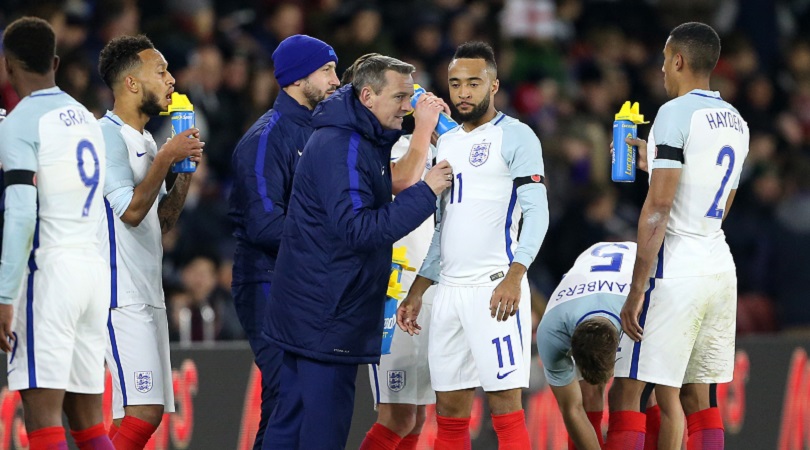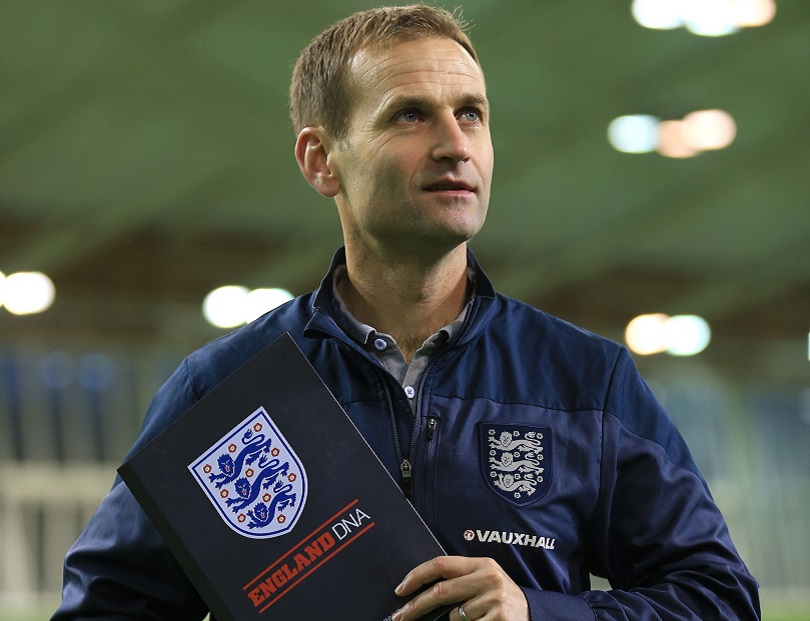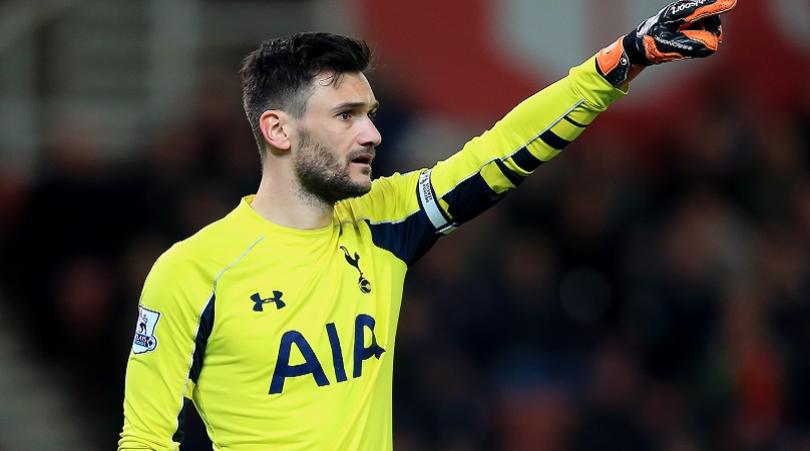England's senior side may be struggling but the Under-21s show that the future is bright
Seb Stafford-Bloor was at St Marys to watch the Young Lions' 3-2 defeat of Italy, a game in which they demonstrated that progress is at least being made at youth level

England's U21s travelled to Southampton on Thursday to face Italy in a preparatory friendly. The post-Allardyce reshuffle has left Aidy Boothroyd in temporary charge and, having already qualified for next summer's European Championship in Poland, the squad demonstrated their growth against an opponent with whom they have a painful recent history and who were the last side to inflict defeat upon them.
The 3-2 win extended England's unbeaten run to 15 games, encompassing a victorious Toulon campaign and an unbeaten qualification tournament. Age-group football is a strange world and not nearly as harsh an environment as the senior equivalent, but the Young Lions' record is nevertheless impressive - albeit with a caveat.
Serene qualification has become an assumed tradition, but also a false indicator. Gareth Southgate led his players through a flawless campaign before exiting at the group stage in 2015, while Stuart Pearce also oversaw group stage eliminations in 2011 and 2013 having smoothly sailed England to Denmark and Israel respectively.

England DNA
The DNA emphasises a range of age-phase priorities which the FA intend to turn into characteristics of all their representative sides
In all three cases, there were asterisks: Southgate lost the influential John Stones and Saido Berahino on the eve of the 2015 tournament and was left overly reliant on an exhausted Harry Kane. Equally, while Pearce's tactical shortcomings were exposed in both of the preceding tournaments (England failed to win any of their six group games) it's relevant to note that, partisan hyperbole aside, neither of his squads were particularly talented - they performed poorly but, exaggerated expectations aside, more realistically than assumed.
No matter the age group, it's difficult to view England through the prism of anything other than the senior side. When Iceland caused the latest national humiliation in the summer, the reflexive response was to ridicule the FA and their "England DNA" initiative. Authored by Dan Ashworth, the association's technical director, it emphasises a range of age-phase priorities which the FA intend to turn into characteristics of all their representative sides. Retention and "love" of the ball are all emphasised, as is the need for "intelligent" defending and the ability of individual players to complement their teammates.

In conjunction with the association's "four-corner" (technical/tactical, physical, social and psychological) player development model, the aim is to grow teams and players with more emotional and technical dexterity. True, the buzzwords and mild management speak are a little naff, but under that shiny veneer lies something of substance - and a series of developments which English football has needed to embrace for many decades.
Get FourFourTwo Newsletter
The best features, fun and footballing quizzes, straight to your inbox every week.
Recent success
England are producing smarter, more tactically and technically rounded players who seem built for the modern international arena
Regardless, post-Iceland it became a stick with which to beat the FA and, in a few instances, Ashworth himself. Empty phrases and empty promises; after fifty years of continuous failure, neither the public nor the press have the patience for long-term reform.
That's simultaneously legitimate and absurd. Legitimate because, quite understandably, the fortunes of age-group teams don't really resonate with the sporting population, but absurd because the impact of Ashworth's initiatives, like any form of investment, will be felt over the next generation. The senior team quite obviously remain prisoners of their various ailments, but below that level exists tangible evidence of evolution. Ashworth's been in his role since 2012 and, during that period, the U17 side have won the European Championship, the U19 team have reached a semi-final and, last summer, England won the U23 Toulon Tournament for the first time since 1994.
Evidently, something is happening. England are producing smarter, more tactically and technically rounded players who, more so than their predecessors, seem built for the modern international arena - in essence, the fabled England DNA is actually real.
Progressive football
In different times, it would be hard to envisage an English coach constructing a frontline from anything other than an orthodox centre-forward or two
The Under-21 squad are a pertinent example of that. Boothroyd made six changes for the friendly with Italy, leaving out the in-form Tammy Abraham and opting instead for a fluid front two of Demarai Gray and Nathan Redmond ahead of the customary midfield diamond. The performance wasn't perfect, but it did represent progress: Jack Stephens' stoppage-time winner added to goals from Gray and Lewis Baker and Italy, so often too smart and too savvy for England at this level, were deservedly beaten 3-2.
But literal, results-based analysis, which focuses only on the score, the imperfections within the hosts' play and how they made the game harder than it might have been, misses the point. The FA's structure-wide emphasis is not on winning individual games, but on correcting a cultural deficit and growing sustained performance from healthier soil.
Look deep enough and that fertility's in evidence. In different times, it would be hard to envisage an English coach constructing a frontline from anything other than an orthodox centre-forward or two. Boothroyd was imaginative on Thursday night, and while his pace-based attack flashed periodically rather than sparkled throughout, it was an example of creative thinking - of lining up in a way which targeted an opponent's weakness, rather than just in a shape which was easy to justify to the press.
Positive signs
England adjusted their shape throughout, with Boothroyd shifting his midfield and attacking pieces in a way which kept the Italians off-balance
Though vulnerable defensively, his side's performance was notable for its flexibility. In previous generations, England teams of all ages seem to have been reliant on momentum swings and on enforcing a single, native style of play on their opponents. But these are different times and the adapt and adjust generation is coming - the traits are there, even if the definitive proof isn't quite.
On Thursday night, the inconvenient minutiae of misplaced passes and sloppy man-marking was secondary to the clear existence of a collective intelligence. England adjusted their shape throughout, with Boothroyd shifting his midfield and attacking pieces in a way which kept the Italians off-balance and, more importantly, facing a threat that they were never quite comfortable in dealing with.

Gray hit the bar early in the second-half, Nathaniel Chalobah fired just over and the pressure began to build. In those opening minutes after the break, there was a real sense that England were manoeuvring themselves back into the game and not, as has often been the case, just swinging a blunt, heavy axe aimlessly. The introduction of Will Hughes helped, with the Derby midfielder's close control and distribution adding an extra degree of purpose, but it was the collective recalibration that was more important. The Italians had been gifted a lead which they didn't deserve and it was a situation that demanded process and poise rather than panic. Typically in that kind of situation, England default to the latter state.
A brighter future?
But here the ball was won and kept, holes started to re-open in the visiting backline and Chelsea's Lewis Baker (currently on loan at Vitesse) curled a shot beyond - or rather through - Pierluigi Gollini. It was an equaliser which England were due, but one they previously wouldn't have got. It relied on ring-craft rather than punching power and rewarded the hosts for seeking and taking control rather than just fruitlessly windmilling haymakers in their opposition's vague direction.

This was England DNA in practice rather than just theory: this is how it's supposed to look. New combinations - between the midfielders, the wide players and the full-backs - grew quickly, possession was retained and generally used patiently and sensibly, and the side as a whole adapted well to the situations, adverse or otherwise, thatoccurred within the game. Winning the match late sent the St Mary's crowd home happy, but this was an occasion when the subtler detail felt more important; this was a victory built on substance and method, the sort of which will stand up to inspection.
It will, of course, take more than a friendly win at U21 level for English football to emerge from the shadow of Iceland and all the disappointments that came before. On the bright side, though, the country does at least seem ready to begin that journey.
Yes, Dan Ashworth will continue to be reductively flogged for as long as the senior side doesn't win, but the proof of his work exists underneath that top layer. The real talent in this country currently lies at U20 and U19 level and so, with the U21s already showing definitive growth, the structure would seem to exist for a productive future.
Seb Stafford-Bloor is a football writer at Tifo Football and member of the Football Writers' Association. He was formerly a regularly columnist for the FourFourTwo website, covering all aspects of the game, including tactical analysis, reaction pieces, longer-term trends and critiquing the increasingly shady business of football's financial side and authorities' decision-making.

